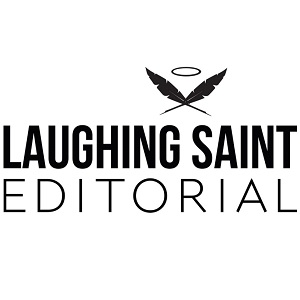It's always a privilege to work with academics on their manuscripts. As a former academic, I know the joy of having a book-length manuscript accepted for publication. But having the manuscript accepted is just the first step. Perfecting the manuscript can be the hardest part, especially for academics whose degrees aren't in writing studies. That's where LSE comes in. I was fortunate to help Jospeter Mbuba, PhD, by lightly copyediting and proofreading his book Policing in Eastern Africa: A Focus on the National Police Service in Kenya. Here's what Dr. Mbuba had to say about the book and working with me as a copyeditor and proofreader.
LSE: What’s the title of your book, and when did you first decide to write it?
Mbuba: Policing in Eastern Africa: A Focus on the National Police Service in Kenya. The project is the culmination of my sabbatical research. I sought to fill a void in comparative and international policing, as there were no comprehensive academic reference materials on policing in Kenya.
LSE: Where is the book currently in the publication process?
Mbuba: The book is currently under consideration for publication. What remains are a few photos to be added and any feedback from the potential publisher.
LSE: What are your hopes for the finished book? Whom do you hope to reach, and what effect do you hope this book will have on them?
Mbuba: I hope to have the book adopted for teaching in higher education institutions in Kenya and the larger region of Eastern Africa and to have it used as a reference by scholars of comparative and international law enforcement. The effect of this work will be to provide students with a baseline text about policing and to make available comprehensive data for use by scholars.
LSE: You’d mentioned during the editing process that you enjoyed reviewing the first pass of the edits and proofreading markups. What was it that you found enjoyable?
Mbuba: It was absolutely enjoyable to learn from my own grammatical errors and to see the various effective ways of communicating an idea.
LSE: How did the proofreading/editorial process help improve your manuscript and, perhaps, benefit you as a writer?
Mbuba: The editorial process improved the quality of my work significantly. It evened out awkward sentence turns, put emphasis where it was necessary, introduced active tone where it unnecessarily was passive, changed the focus to the right subjects in sentences, removed ambiguities, introduced clarity as necessary, and provided proper punctuation. Reading through these edits certainly benefited me, as it gave me quite a few insights about how to improve my writing.
LSE: Was LSE fair and accommodating regarding the price and payment arrangements?
Mbuba: The price and payment arrangement were very fair. I couldn’t ask for more.
LSE: What advice would you give to other academic and book-writers who are writing non-fiction books, both about writing their books and about working with a professional copyeditor?
Mbuba: Every writer needs a professional copyeditor. Novices can improve the quality of their work, and experts benefit from a second opinion.
